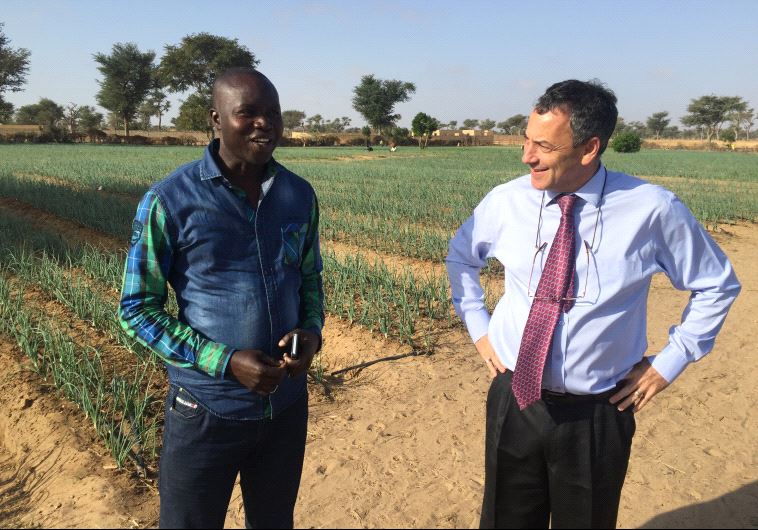Jerusalem orders to cancel all aid programs to resolution co-sponsor Senegal
Senegal's UN Ambassador Fode Seck has been outspoken in the past about the Palestinians, supporting increased aid and international support.
 Ambassador Paul Hirschson at a small farm project supported by Israel in Senegal in March (photo credit: SETH J. FRANTZMAN)Updated:
Ambassador Paul Hirschson at a small farm project supported by Israel in Senegal in March (photo credit: SETH J. FRANTZMAN)Updated: